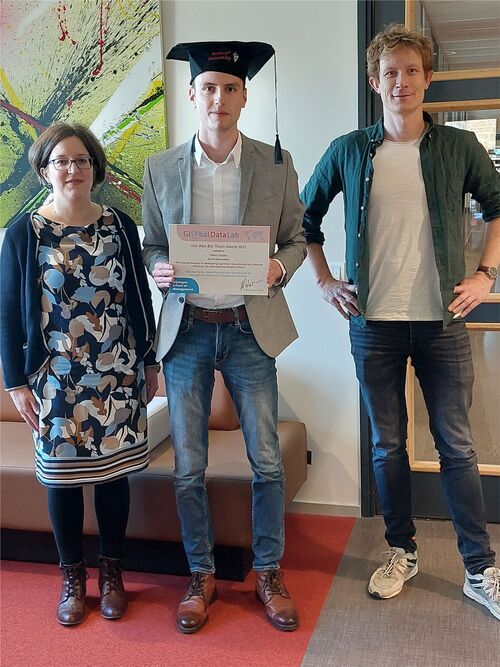GDL participation in convening 16-20 October
13 October 2023
Next week Jeroen Smits will present the small-area data of the Global Data Lab at the convening “MERGE: Creating a new interdisciplinary global data platform for human impacts of climate extremes” that is organized from 16-20 October at the Bellagio Convening Center of the Rockefeller Foundation in Italy, https://www.rockefellerfoundation.org/bellagio-center/.
Launch of Data API and R package
25 September 2023
The Global Data Lab is happy to announce the immediate availability of an API for its datasets. We introduce an R package to interface with it directly from your scripts. Access to the API is free, though an account is required to create a personal API token. These tokens are used to rate-limit the use of the API, allowing us to hopefully prevent abuse.
Currently, an account is limited to creating one active API token. If you would like to use the GDL Data API in a classroom setting, please contact us for a tailor-made solution.
GDL Vulnerability Index launched
19 April 2023
The Global Data Lab is happy to announce the first release of its GDL Vulnerability Index (GVI). This is an index to monitor and project socio-economic vulnerability to climate change. It can be used to compare the socio-economic component of climate change vulnerability of countries worldwide and to project how countries will fare along the five Shared Socio-economic Pathways.

SHDI Database 6.0 released
16 February 2023
Global Data Lab has released a new version of its Subnational Human Development Index, adding data for 2020 and 2021. We invite you to make use of it and to report back to us in case you encounter problems.
Area Database 5.0 released
6 February 2023
A new version of the Area Database is available, consisting of 134 countries, 1451 sub-national regions and 129 indicators. New surveys included are: Côte d'Ivoire (2016), Fiji (2021), Nepal (2019), Vietnam (2021). Also note that for MICS rounds 6 and 7, the indicators for refrigerator and TV improved.
Alden Chazan wins BA Global Data Lab prize
1 December 2022
In his bachelor thesis at Nijmegen School of Management, Alden Chazan investigated the relationship between the International Wealth Index and democracy in developing countries. He argued that the GDP (gross domestic product) as a measurement of welfare is limited, especially when it is used in a dataset with developing countries.
Therefore, he used the International Wealth Index from the Global Data Lab. This indicator is the first asset-based indicator that is comparable across countries and time.
Alden recently received our first BA Global Data Lab (GDL) prize! Congratulations, we are very proud and look forward to your next steps.

Haike Pijs wins MA Global Data Lab prize
24 November 2022
Haike Pijs recently received our first MA Global Data Lab (GDL) prize during his graduation ceremony of his master thesis titled ‘Sub National Good Governance and Development: A Comparative Study of African countries’ at Nijmegen School of Management. He investigated the relationship between sub-national good governance and development in Botswana, Ghana, Tanzania, and Uganda using a panel data analysis with data from the Global Data Lab.
Haike Pijs: ‘The Global Data Lab provided key data to investigate this relationship. Without the Global Data Lab the study would not have been possible. The GDL is very user-friendly which makes it great to work with’.
Natascha Wagner: 'Haike, I am very proud of you and looking forward to the next steps in your career. For now, I wish you all the best! I hope to see you back soon.'

Onboarding Event
21 October 2022
Global Data Lab Onboarding Event to Stimulate Joint Research: On Thursday 27 October, from 12.00 to 2.00 pm, The Global Data Lab organises an onboarding event at the Nijmegen School of Management for researchers interested in collaborating. We would like to invite all interested researchers for this two hour session. We will use the first hour to introduce different work we have done and published with the GDL micro-data and the second hour to discuss possibilities for collaboration reaching from joint BA and MA theses to joint projects, joint grant applications and adding new data to do joint research.
Please inform us about your interest in participating so that we can order lunch for you.
Global Data Lab launches its new website
22 June 2022
We are excited to announce our new website! The Global Data Lab provides free socio-economic, demographic, gender and health indicators for subnational regions. Our new website aims to make these available to a wider audience by new means of visualisation. We would like to invite you all to explore our new site over at https://globaldatalab.org/

SHDI Database 5.0 released
8 June 2021
SHDI Version 5.0. Update of all indices and underlying indicators to 2019. The subnational versions of the Human Development Index and the Gender Development Index are now combined into one integrated Human Development dataset. National values of the indices and indicators are equal to those in the latest version of the UNDP Human Development Index Database and the Human Development Report 2020. The number of countries for which subnational data is available is increased to 163 and the number of subnational regions to 1783. Data for Kiribati, Tonga and St. Lucia have been added. Earlier versions of the database can be downloaded from the SHDI Download page.